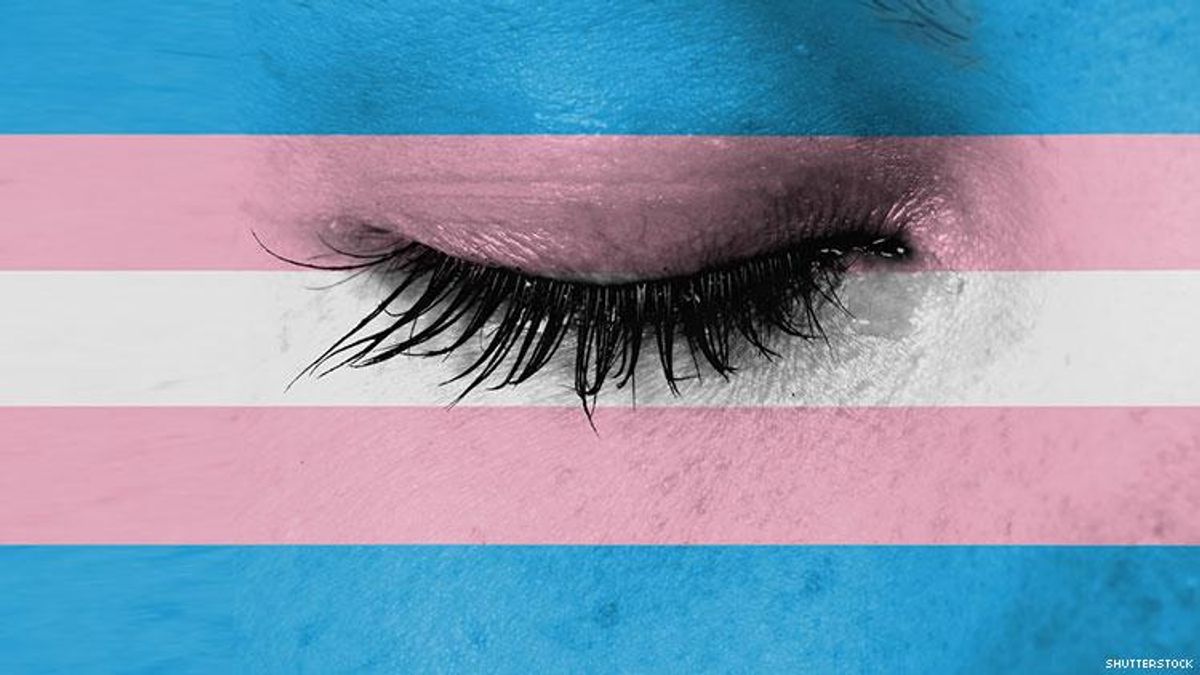All Rights reserved
By continuing to use our site, you agree to our Private Policy and Terms of Use.
The recent publication of a study by the American Academy of Pediatrics during National Suicide Prevention Month has offered more evidence that transgender youth are at increased risk for suicide, deepening our understanding of the dramatic differences in life expectancy between transgender and cisgender (non-transgender) people. There have rightly been calls for an increase in mental health resources, training on warning signs, and comprehensive data collection on this underresearched population. But what has been missing too often is a frank conversation on the root causes of what -- with surveys reporting an attempt rate of up to 40 percent -- can legitimately be called an epidemic of trans suicide.
The study in Pediatrics found that trans-masculine youth are significantly more likely to have their lives cut short by suicide, followed closely by nonbinary youth, while other research has found that trans-feminine youth more often lose their lives to violence. These differences in how lives end suggest that the lives of trans people are valued and devalued differently depending on who they are. For example, serious psychological distress, already high among trans people, is significantly higher for youth and nearly doubled for those living with a disability. And while hate crimes against trans people as a whole are on the rise across the country, most of the 21 known trans murder victims in 2018 have been black trans women.
At Trans Lifeline, we hear about the real lives behind those numbers every day. But we don't just see the moment they become statistics. We see the moments of fear leading up to crisis and the moments of despair following it. And we see the direct relationship between those moments and national headlines. The impact of policy developments and bully pulpits on trans lives and on those who feel justified in devaluing them is real and profound.
This month those headlines included a decision by the U.S. State Department to change the language on its website regarding the process for changing names and gender markers on passports. While the Trump administration has insisted that the intent was not to change official policy and promised to restore the original language, the impact on trans lives has been crystal clear to our Microgrants program. Over the past week, we have fielded a growing number of applications for fees to cover passport changes from members of our community rightly concerned that their rights are disappearing. It's not possible to talk about bullying without talking about the campaign of intentional stigmatization, exclusion, and erasure coming from the highest levels of our government.
This March, the president accepted the recommendations of a factually and legally controversial memorandum that effectively banned transgender people from serving in the military. Predictably, in the week following, calls to the Trans Lifeline crisis hotline went up 34 percent. But military service isn't the primary employment issue putting trans lives at risk. Shortly afterward, Trump signed into law the Stop Enabling Sex Traffickers Act and Allow States and Victims to Fight Online Sex Trafficking Act (SESTA/FOSTA). Though it was intended to curtail sex trafficking, its effect was to decimate the online platforms that sex workers were using to screen clients and share information about safety, forcing many back to more dangerous forms of street-based work. In the week after SESTA/FOSTA passed, Trans Lifeline's call volume went up 97 percent. It's not possible to be an ally to trans people without being an ally to sex workers.
It is fair to name what we are facing a mental health crisis. But we can't talk about trans mental health without talking about employment discrimination, something 69 percent of trans people now working in the sex trade have faced. We can't talk about trans mental health without talking about police violence, something trans people are 3.7 times more likely to experience. We can't talk about trans mental health without talking about poverty, something nearly one-third of transgender people are currently living in. These factors combine to make health care, stable housing, and basic living conditions -- much less the gender-affirmative medical care, accurate identity documents, and mental health support that act as protective factors against suicide -- effectively inaccessible. For trans people, suicide prevention isn't just a mental health issue. Suicide prevention is an economic justice issue, a racial justice issue, a disability justice issue, and a criminal justice issue.
This National Suicide Prevention Month, let us push ourselves to look beyond clean narratives and easy fixes that overshadow the real threats facing our community. If we are to truly protect and lift up the lives of transgender people, we have to intervene before the moment of crisis -- at every social, economic, and systemic barrier that makes it impossible to live authentically, and all too often to live at all. Suicide prevention should be a conversation not only about mental health but about the natural emotional responses to material conditions of stigmatization and marginalization.
At Trans Lifeline, we hear every day from trans people fighting for their right to live. The resilience of our community is nothing short of extraordinary. But it shouldn't be necessary. We owe it our community to study not only what takes trans lives but what makes trans lives worth living. Until then, our lines remain open.
SAM AMES is the interim executive director of Trans Lifeline (877-565-8860), as well as a civil rights attorney and national advocate with a decade of experience fighting for LGBTQ rights.













































































